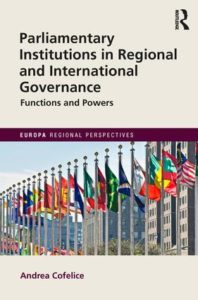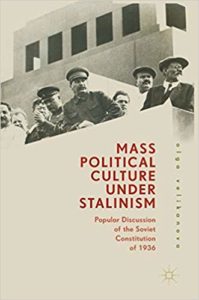
 Heidegger and the Jews: The Black Notebooks
Heidegger and the Jews: The Black Notebooks
By Donatella Di Cesare
Publisher: Polity
Recommended by Louie Dean Valencia-García
Donatella Di Cesare’s Heidegger and the Jews: The Black Notebooks delves into the esotericism and life of German philosopher Martin Heidegger, whose Being and Time (1927) is still studied by scholars in the humanities. Heidegger registered as a member of the Nazi party in 1933. Later in life, the philosopher requested that his Black Notebooks be released once his other works were published—arriving in 2014. According to Di Cesare, in these personal notebooks we see a “philosopher who was attentive to historical events, and aware of his own political decisions.” Many scholars have attempted to defend Heidegger’s anti-Semitism by arguing one should separate “Heidegger the man” from “Heidegger the philosopher”—insisting that Being in Time was not corrupted by Hitlerism. Others have wished to completely excise Heidegger. To give better context to anti-Semitism in philosophy, the author looks at other philosophers from whom Heidegger drew, such as Martin Luther, Voltaire, Kant, Hegel, and Nietzsche. Luther was violently anti-Semitic. Kant understood the “servant-master” relationship had “inextricably conferred upon the Jewish people a condition of perpetual slavery.” Kant even believed a lack of property, of land, prevented Jews from claiming citizenship.
Using the Black Notebooks, Di Cesare demonstrates how one can look at Being and Time to find traces of anti-Semitism laced throughout. Di Cesare writes, “A word that recurs in the Black Notebooks… is Bodenlosigkeit, rootlessness or groundlessness, as opposed to Bodenständigkeit, dwelling on and being part of the land…” Heidegger writes that Jews are without roots, drawing from the legacy of Kantian anti-Semitism. Even today, neo-Nazis chant “Blood and Soil,” a phrase first popularized by Nazis as “Blut und Boden.” Di Cesare argues that for Heidegger Jews “live[d] on the periphery, along with the ‘Negroes,’ who had been excluded from human history since time immemorial.” She continues, “For Heidegger, the Jews were excluded from Being.” To understand Heidegger’s concept of “Being” one must understand who is considered a being by the philosopher. Heidegger and the Jews makes Heidegger’s anti-Semitism legible. Importantly, Di Cesare’ shows readers the need to revaluate all works citing anti-Semitic philosophers so that to better understand how philosophy, history, and politics intersect.
 Food & Nutrition: What Everyone Needs to Know
Food & Nutrition: What Everyone Needs to Know
By P.K. Newby
Publisher: Oxford University Press
Recommended by Hélène B. Ducros
This book joins the popular “What everyone needs to know” series which confronts major current issues in an upfront and wide-ranging manner. Food is a welcome and thought-provoking complement to the series and P.K. Newby’s book lives up to the expectation as it ambitiously reviews the vast topic of food and nutrition and highlights its relevance to every facet of people’s lives all over the world. Newby undertakes to unpack the complex forces at work behind the seemingly simple act of eating (or not eating). A task she achieves through 134 questions proposed around five central themes. Answers are packed with appraisals of scientific data, which she puts in conversation as she places them in wider societal and scientific contexts in the overall pursuit of using nutrition for healthier and sustainable living. The Q&A covers matters of food production and the actors who participate in supplying foods through different delivery channels; the tools and new technologies of food provision and the various locales where people access food; the “revolutions” that have affected the food supply and people’s diets; the effects of dietary inclinations onto the environment, bodies, and ultimately quality and length of life; ways in which different cultures and places apprehend food intake; and what the future of food might look like, all the while not shying away from controversial subjects such as hormones, antibiotics, GMOs and other prominent environmental ethics and food safety concerns. Lively in tone and highly enjoyable, the book engages readers in an honest dialog and brings undeniable value to the many existing debates over contemporary and future food systems.
Debunking myths and inviting readers to unlearn and relearn through balancing out available science, the volume is a compelling call against dogmatic beliefs about food production, distribution and consumption. It encourages us to open our minds to discordance and introspect about our own positioning on these issues. A wonderful addition to food studies, the book will be of interest to food scientists, teachers of food and generally all interested in what they eat, from a gustative, social, economic, health, or environmental stance. At a time when changing foodways must meet environmental challenges, Newby makes us better equipped to answer one of the last questions in the book: “What will dinner look like?”

Parliamentary Institutions in Regional and International Governance Functions and Powers
By Andrea Cofelice
Publisher: Routledge
Recommended by Daniela Irrera
In a period marked by the will to return to sovereignty, borders and militarization, parliaments and parliamentary institutions remain a sign of democracy and representativeness and continue to guarantee a space for deliberations in many policy fields in a cross-regional perspective.
In his book, Andrea Cofelice offers a detailed and thorough investigation which compares 22 parliamentary institutions from European, African and Latin American international regional organizations. He discusses the impact produced on the decision-making processes and the conditions under which such impact is expected to expand. Research on these important aspects of international politics is refreshing and well-needed.

Mass Political Culture Under Stalinism: Popular Discussion of the Soviet Constitution of 1936
By Olga Velikanova
Publisher: Palgrave Macmillan
Recommended by Samantha Lomb
In her new book Olga Velikanova uses a variety of sources, from NKVD reports, reports sent to the Central Committee from various Soviet regions and even American intelligence reports to explore the rational behind the liberal reforms enshrined in the 1936 constitution. She discovered that the Soviet leadership implemented these reforms because they believed the country had ascended into socialism and the divisions in society had largely been erased. But during the discussion of the draft constitution, popular suggestions revealed great divisions in soviet society. Velikanova focuses specifically on liberal rights such as free speech and assembly as well as judicial and voting reforms. She notes that Soviet citizens were in favor of more rights for themselves but many vociferously rejected the expanded franchise, which would give former class enemies voting rights. Additionally, because Stalin had called for limited popular democracy to be a weapon against incompetent and corrupt officials local and regional officials often delayed or even purposely sabotaged the discussion of the constitution. The rifts in society revealed in the popular suggestions and regional officials’ poor attitude towards the discussion contributed to the constitution being quickly castrated in 1937 as repression gripped the country and devoured both the party elite and average citizens. Velikanova’s book explores how this failure to keep constitutional promises led to citizens’ disillusionment with the government and a rising popular cynicism that eventually led to the collapse of the USSR.
 The EU after Brexit: Institutional and Policy Implications
The EU after Brexit: Institutional and Policy Implications
By Francis B Jacobs
Publisher: Palgrave Macmillan
Recommended by Malcolm Campbell-Verduyn
In the countdown to 29 March 2019, Brexit is rightly focusing a great deal of attention on the implications for the United Kingdom stemming from its planned departure from the European Union. Yet the parallel implications arising for the EU 27 tend to elicit significantly less attention, at least beyond the short-term efforts to prevent further EU member states from seeking to withdraw from the Union. The EU After Brexit provides necessary scrutiny of short and longer-term consequences for the remaining EU27, including analysis of both the obvious institutional and policy implications, as well as the less evident linguistic and cultural ramifications. If an “ever closer Union” is to proceed in the wake of the departure of the third largest member, many of the longstanding challenges facing the EU will need to be confronted much more head on, argues Francis Brendan Jacobs in a short but to the point analysis of the likely future path of supranational political organization in Europe.




